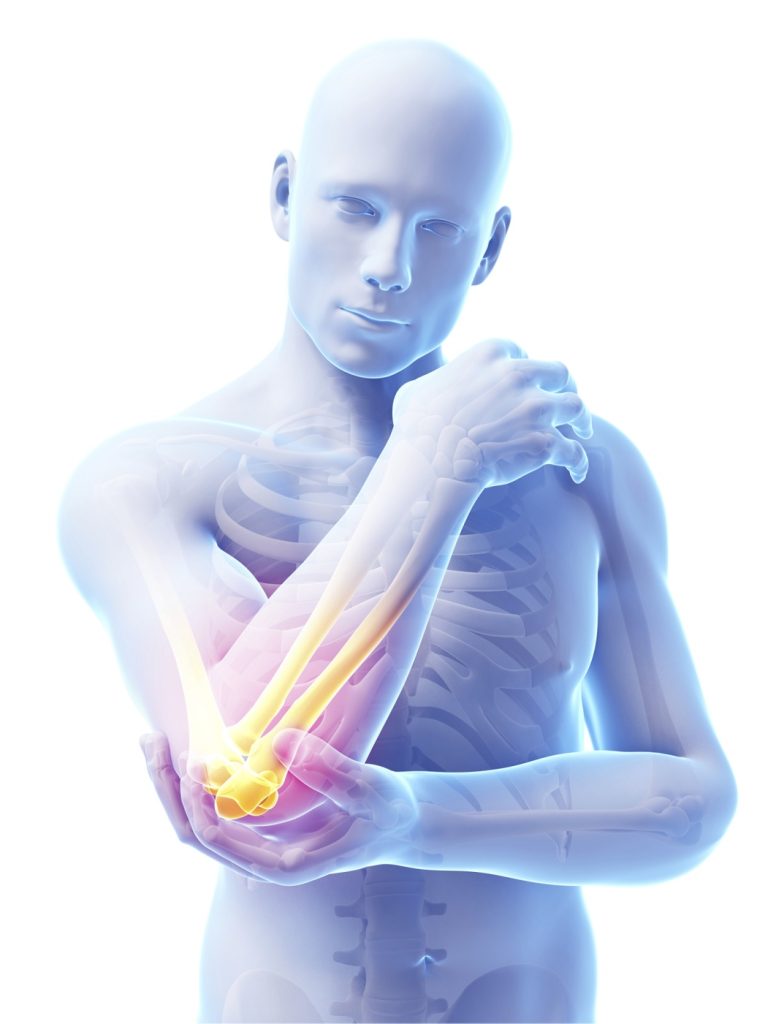- Acute inflammation is a necessary function of the body’s immune response.
- Chronic inflammation can lead to chronic illness and is a marker for most chronic diseases and disabilities.
- Chronic inflammation is present in those who have had vaccine reactions leading to chronic disease and disability.
Inflammation is becoming a hot topic of discussion among health care professionals looking at nutritional and other therapies to address chronic diseases. Although a lot of people are talking about it, how much is known about the role that acute and chronic inflammation plays in human health and why can unresolved inflammation pose a threat to good health?
What is Inflammation?
Inflammation is a normal and protective response by your body’s immune system to deal with injury, irritation and stress from diet and lifestyle choices or toxic environmental exposure. The ability of the body to produce acute inflammation is a primary component of the immune system and part of innate (cellular) immunity that infants naturally acquire in the womb to protect them after birth.1
Adaptive or “learned” (humoral) immunity is produced after the innate immune has identified a challenge from, for example, a pathogenic virus or bacteria, and the immune system’s inflammatory response produces specific antibodies to target and “remember” how to make a quicker, more effective response in the future if challenged again.2
Acute inflammation is part of the body’s healing mechanism and is produced in response to exposure to trauma, an infectious microbe, toxic exposure or other stressor on the body. However, if the inflammatory response does not resolve and inflammation becomes chronic, it can lead to a very serious health problem.
Inflammation is a complex phenomenon, but following is a briefs overview of how it works. First, there are two types of inflammatory responses: acute and chronic.1 3
Acute Inflammation: A Healthy Response
Acute inflammation is the body’s first line of defense to trauma and challenge by microbes or a toxic environmental exposure or stressor in the environment. It begins almost immediately (within seconds) after injury or challenge to the body. It is normally short-lived and lasts anywhere from a few hours to a several days or many weeks.4 Dr. Scott Walker, a family practice physician at Gunnison Valley Hospital in Utah describes acute inflammation as “biochemical processes that release proteins called cytokines as “emergency signals” that bring in your body’s immune cells, hormones and nutrients to fix the problem.”4
Here is a typical example of when acute inflammation occurs:
Think of what happens when you get a splinter: if you leave the splinter in there, the whole area turns red and gets a little puffy. That’s inflammation at work, but it’s not actually bad news; it’s just your immune system essentially rushing help to the area to fight any viruses or bacteria that might have gotten in. In the case of a cut or splinter, you want that help there: it’ll keep any pathogens out of your body so they won’t make you sick. That inflammation is a good thing. With a physical injury, if you leave the spot alone and don’t irritate it any further, the swelling will go down and everything will go back to normal. In fact, sometimes it even gets back to better than normal. For example, exercise actually injures your muscles and provokes an inflammatory response, but your body heals the injury and bounces back stronger than it was before.5
Acute inflammation causes temporary discomfort resulting from pain, fever, redness and swelling; however, without acute inflammation, wounds would remain unhealed and infections would become deadly.4 6
Chronic Inflammation: Indication of a Dysfunctional, Overburdened Immune System
Acute inflammation is supposed to resolve after infection is over and repair or clearance of injured cells and tissues has occurred so healing can take place. Chronic inflammation is characterized by persistent, low-grade inflammation that does not resolve after the acute inflammatory response and is a symptom of a dysfunctional, overburdened immune system. There are many causes of chronic inflammation in the body, such as poor diet, too little sleep and too much stress, exposure to environmental toxins and reactions to pharmaceutical products like drugs and vaccines, etc.4 7
Unfortunately, chronic inflammation can occur in the body without obvious symptoms until, eventually, it has damaged the body’s tissues and symptoms start to become apparent. However, chronic inflammation in the body is not always apparent and many people are unaware that they are inflamed. It is why chronic inflammation is sometimes referred to as “hidden inflammation”.8
Think about it this way: But now imagine if you kept stabbing yourself with splinters in the same spot, or kept training every single day without getting enough rest time to let your body repair between workouts. The inflammation would never go down, because you’d constantly be re-injuring yourself. That’s exactly what happens if you keep irritating your gut lining (for example, with foods you’re sensitive to). The injury is constantly being repeated, three meals a day (or more, if you’re a snacker), 365 days a year. All of these things are serious stressors, and if they’re constant presences in your life, they’re causing chronic inflammation. If the inflammation is in your gut, you might not see it the way you see a splinter on your finger, but it’s still there, gumming up the works. Think of the way your whole joint swells up and gets stiff when you get a splinter in your knuckle: it just doesn’t work right. Now imagine your gut trying to work when it’s all inflamed like that, all the time. You might not see the problem, but it’s still there.5
Chronic inflammation is a key factor in heart disease, diabetes and cancer and autoimmune system disorders, such as inflammatory bowel disease and rheumatoid arthritis, and chronic brain disorders, such as Alzheimers, depression and autism.9 10 11
Dr. David Marquis, a chiropractic physician who is board certified in clinical nutrition in San Luis Obispo County, CA puts it this way:
The presence of inflammation is what makes most disease perceptible to an individual. It can and often does occur for years before it exists at levels sufficient to be apparent or clinically significant. How long it has been smoldering really determines the degree of severity of a disease and often the prognosis assuming the inflammation can be controlled. One could also argue that without inflammation most disease would not even exist.12
Vaccines: Immune Overload
When identifying stressors that trigger chronic inflammation, vaccines cannot be ruled out because an acute inflammatory response must be mounted by the immune system in response to vaccination in order to stimulate temporary artificial immunity. Nephrologist Dr. Suzanne Humphries said, “A vaccine by definition, causes repeated, chronic inflammation at set time intervals. Vaccines are designed to create peripheral inflammation…”13
In the U.S., almost all children are given a total of 69 doses of 16 vaccines between day of birth and age 18.14 There are genetic, biological and environmental risk factors that increase individual susceptibility to vaccine reactions that can cause chronic illness and disability marked by chronic inflammation.15
A peer review study published in Journal of Molecular and Genetic Medicine provides evidence that inflammatory responses stimulated by repeated vaccinations can result in chronic inflammation and immune overload that leads to obesity and diabetes, which are among the prevalent childhood diseases involved in the current chronic illness epidemic.16 Immunologist and diabetes researcher, Dr. Barthelow Classen, who authored the study, said:
The best data indicates that vaccine-induced chronic disease is now of a magnitude that dwarfs almost all prior poisoning of humans including poisoning from agents like asbestos, low dose radiation, lead and even cigarettes. Most patients don’t even realize that they are suffering from the adverse effects of vaccines. Even more concerning patients and or their parents are being harassed, accused of practicing poor dieting and exercise habits leading to development obesity and diabetes when in fact they suffer from vaccine induced obesity and diabetes.17
Chronic inflammation is a serious health problem in the U.S. and around the world and, all potential root causes should be fully investigated, including vaccination.
References:
1 Nordqvist C. Inflammation: Causes, Symptoms and Treatment. Medical News Today
2 Price D. What is the Immune System: How It Works. British Society for Immunology.
3 Maskrey BH, Megson IL et al. Mechanisms of Resolution of Inflammation. ATVB 2011; 31: 1001-1006.
4 Szalay J. Inflammation: Causes, Symptoms and Anti-Inflammatory Diet. LiveScience.com Sept. 30, 2015.
5 What is Inflammation Anyway (And Why Is It Bad?) PaleoLeap.com.
6 Chandrasoma P, Taylor C. Concise Pathology. McGraw-Hill Publishing Co; 3rd Edition 1997.
7 Franceshi C, Campisi J. Chronic Inflammation (Inflammaging) and Its Potential Contribution to Age-Associated Diseases. The Journals of Gerontology: Biological Sciences 2014; 69 (Suppl 1): S4-S9.
8 Kotz D. Chronic Inflammation: Reduce It To Protect Your Health. U.S. News Nov. 2, 2009.
9 Stix G. Is Chronic Inflammation the Key to Unlocking the Mysteries of Cancer? Scientific American Sept. 9, 2008.
10 Fisher BL. Vaccines, Autism and Chronic Inflammation: The New Epidemic. The Autism File 2009.
11 Ellis M. Brain study shows inflammation is a marker for autism. Medical News Today Dec. 11, 2014.
12 Marquis D. How Inflammation Affects Every Aspect of Your Health. Mercola.com Mar. 7, 2013.
13 Humphries S. Vaccination. Dr.Suzanne.net.
14 National Vaccine Information Center (NVIC). 49 Doses of 14 Vaccines Before the Age of 6? 69 Doses of 16 Vaccines by Age 18? Before You Take the Risk, Find Out What It Is.
15 Institute of Medicine Committee to Review Adverse Effects of Vaccines. Adverse Effects of Vaccines: Evidence and Causality: Evaluating Biological Mechanisms of Adverse Events: Increased Susceptibility. Washington, DC: The National Academies Press 2012.
16 Classen JB. Review of Vaccine Induced Immune Overload and the Resulting Epidemics of Type 1 Diabetes and Metabolic Syndrome, Emphasis on Explaining the Recent Accelerations in the Risk of Prediabetes and other Immune Mediated Diseases. Journal of Molecular and Genetic Medicine 2014; S1:-025.
17 New Paper Provides Convincing Evidence Vaccine Induced Immune Overload and Related Serious Health Issues is Becoming the Norm not the Exception in US Children. PRNewswire.com May 13, 2014.













